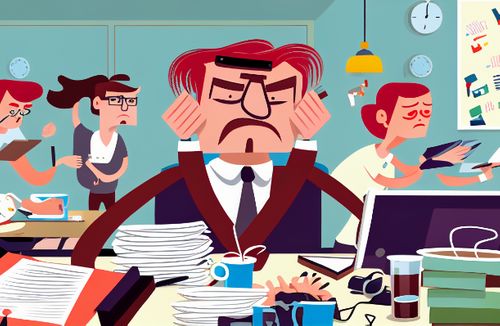Cal Newport on the problem with workplace productivity
Feb 07, 2023 · 2 mins read
0
Share

Cal Newport is the best-selling author of “Deep Work” and “Digital Minimalism”. In 2023, he shared new insights on the subject of slow productivity in an interview with NYT writer David Marchese.
If you haven’t read all 2,500 words (or don't subscribe), here’s my TL;DR...
Save
Share
The key concept to understand is that even minor “context shifts” (changing focus from one task to another) kill productivity. Yes, even briefly switching tabs in your browser.
Treat focus like a dental visit. “You can’t check your email when you’re having a cavity filled.”
Save
Share
Another issue is the hyperactive hive-mind workflow, i.e. communicating with colleagues via Slack, WhatsApp or email all day. These constant check-ins impede our brains.
Forcing people to manage their own focus won't work. “It has to change at an organizational level.”
Save
Share
One potential solution is setting “office hours”: a set time when a dozen quick conversations can be squeezed in.
For example, “Every day from 3 to 4pm, my Zoom is on, my door is open.” This cuts down context shifting but also countless back-and-forths.
Save
Share
Historically, it takes a long time to optimize any disruptive technology. We’re not there yet when it comes to working with computers connected to the internet.
“It will probably take a generation to figure out what the best kind of collaborative cognitive work looks like.”
Save
Share
We simply don’t know how to adequately measure productivity for knowledge workers. Focusing on visible activity is a failed compromise.
It leads to non-stop context shifting, performative work for its own sake, and burnout. That doesn’t sound very useful, does it?
Save
Share
Slow productivity is Newport’s term for an alternative way of doing things.
It has three key principles:
- do less
- work at a natural pace (ups and downs instead of ‘go, go, go’)
- prioritize quality
Save
Share
This mix corresponds with how our brains are naturally wired, but it also leads to valuable, meaningful work and it’s more sustainable.
Save
Share
So why don’t we all just do that, then?
Ideally, managers would simply set people up to succeed and let employees get on with things.
But this is a systemic problem where managers can’t just change the way things are done overnight. A wider cultural shift is needed.
Save
Share
0